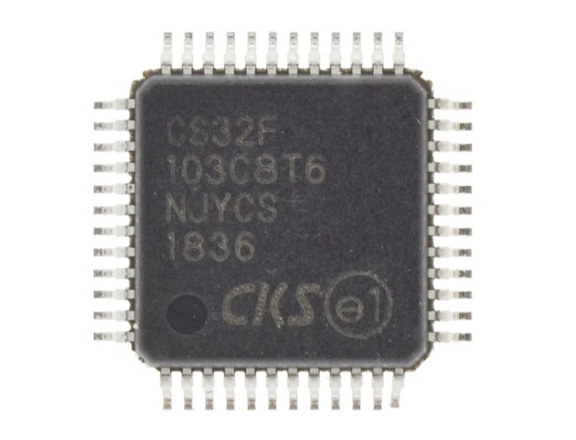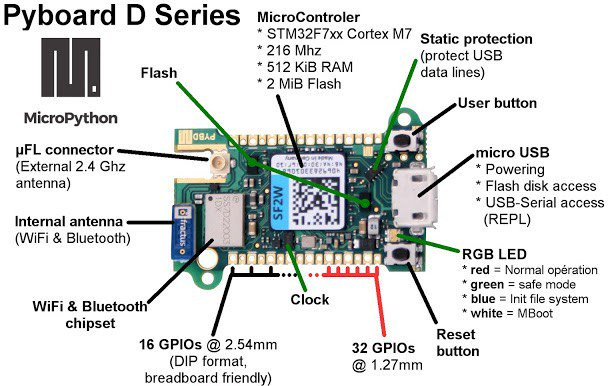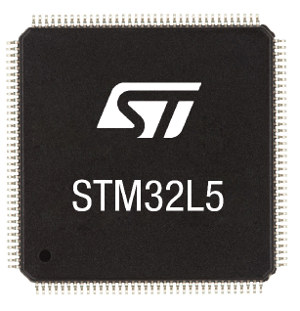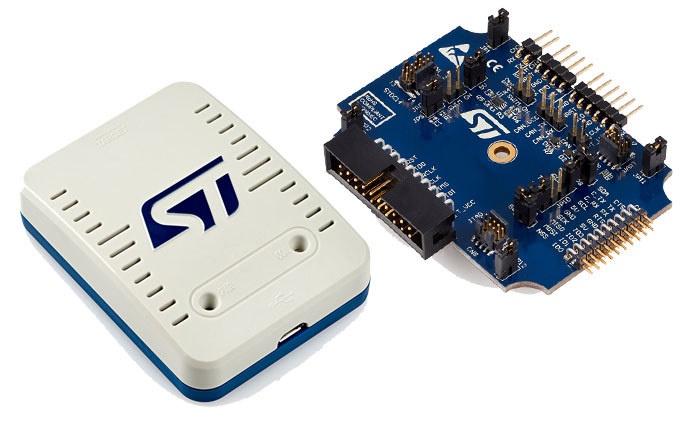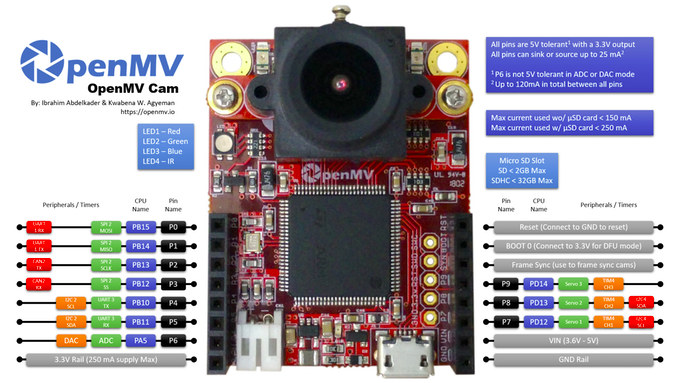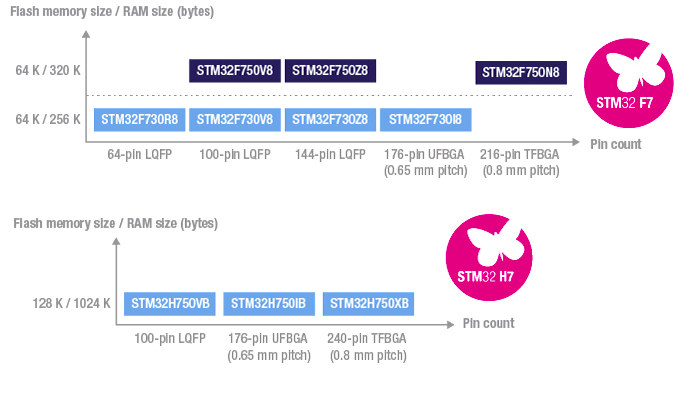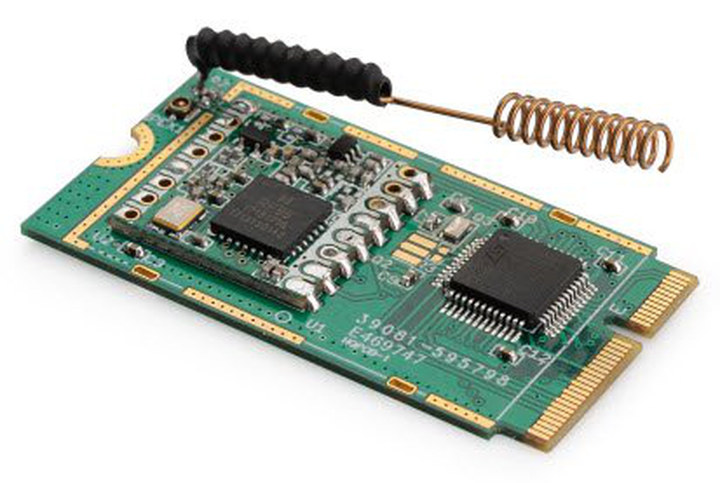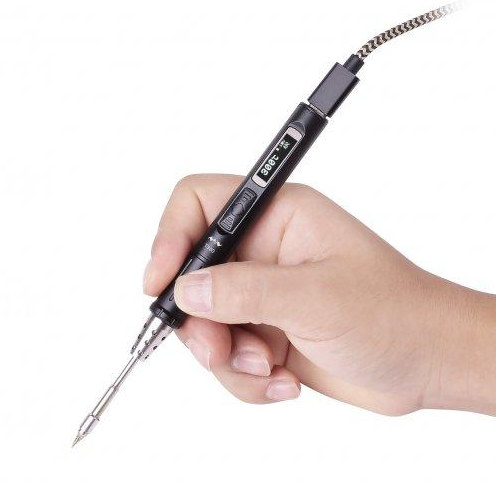A few year ago, we covered GigaDevice GD32 MCU based on STM32 Arm Cortex-M3 microcontroller, but with some improvements to the flash and overall performance. So the MCU is not exactly an STM32 clone per se, but it’s pin-to-pin and software compatible. Now based on a discussion on STM32duino forum, it looks like another company (CKS – 中科芯微) may have made an actual clone of STM32 with CS32, more exactly CS32F103 that is compatible with STM32F103. CS32 comes with an Arm Cortex-M3 core clocked at 72 MHz, 64 to 128KB flash, and 20 KB RAM. A datasheet and user manual are available but only in Chinese. Several STM32duino members suspect it’s an actual copy of STM32 without modifications. What’s unclear is whether it’s a pirated copy, or a properly licensed one. CS32F103C8T6 & CS32F103CBT6 parts can be purchased on Aliexpress for $0.80 shipped and up. The datasheet mentions 64KB or […]
Pyboard D Series MicroPython Board Features STM32F7 MCU, WiFi and Bluetooth
Micropython is a lightweight implementation of Python for microcontroller which we covered first in 2013. The port is supported by various hardware platforms, and I even tested Micropython on ESP32 a little while ago, but the developer – Damien George – also launched officially supported boards starting with Pyboard in 2014 with an STM32F4 microcontroller. At FOSDEM 2019, the upcoming Pyboard D-series (aka Pyboard D, or just PyBD) board was introduced during the Micropython presentation with a faster STM32F7 Cortex-M7 MCU, as well as built-in WiFi and Bluetooth connectivity. Pyboard D preliminary specifications: MCU – STMicro STM32F7xx Arm Cortex M7 microcontroller at 216 MHz with 512KB RAM, 2MB flash Storage – micro SD card slot, and 2x external flash chips Connectivity – WiFi & Bluetooth with on-board antenna and u.FL antenna connector USB – 1x micro USB port for power, flash disk access, and USB to serial debugging/programming Expansion 2.54mm […]
STMicro STM32L5 Cortex-M33 ARMv8-M MCU Family Targets Secure IoT Applications
STMicro STM32 microcontrollers have so far been based on Arm Cortex-M0/M0+, M3, M4, or M7 cores, although we’ve also seen a yet-to-be formally announced Cortex A7 variant shows up in Linux 4.17 with STM32MP157C. The company has very recently announced a new family, namely the STM32L5 series, powered by an Arm Cortex-M33 ARMv8-M 32-/64-bit TrustZone enabled core clocked at up to 110 MHz, and equipped with on-chip SMPS for easy low power efficiency, USB FS device, and USB type-C PD Controller. Two sub-families are part of the STM32L5 series: STM32L552 with 256 to 512 KB of Flash memory and from 48 to 144-pin packages. STM32L562 with 512 KB of Flash memory, and an additional encryption accelerator engine (AES, PKA, and OTFDEC). Besides the extra HW crypto block both share the same key specifications: MCU Core – Arm Cortex-M33 ARMv8-M core clocked at up to 110 MHz (+20% versus Cortex-M4) with […]
STLink-V3 Modular Debugger & Programmer for STM32/STM8 Adds I2C, SPI, CAN Interfaces
STLink is the in-circuit debugger and programmer for STMicro STM32 and STM8 micro-control working with SWIM and JTAG/SWD interfaces. ST Microelectronics has now introduced STLink-V3 which also provides a Virtual COM port interface allowing the host PC to communicate with the target microcontroller through one UART, as well as bridge interfaces (SPI, I2C, CAN, GPIOs) which can be used for programming of the target through the bootloader for example. Key features of STLink V3 debugger: Stand-alone probe with modular extensions Self-powered through a USB connector (Micro-B) USB 2.0 high-speed compatible interface Direct firmware update support (DFU) JTAG / serial wire debugging (SWD) specific features:3 V to 3.6 V application voltage support and 5 V tolerant inputs Flat cables STDC14 to MIPI10 / STDC14 / MIPI20 (connectors with 1.27 mm pitch) JTAG communication support SWD and serial wire viewer (SWV) communication support SWIM specific features (only available with adapter board MB1440):1.65 […]
OpenMV Cam H7 MicroPython Machine Vision Camera Launched on Kickstarter
OpenMV team has launched an upgrade to their popular OpenMV CAM M7 machine vision camera, with OpenMV CAM H7 replacing the STMicro STM32F7 micro-controller by a more powerful STM32H7 MCU clocked at up to 400 MHz. Beside having twice the processing power, the new camera board also features removable camera modules for thermal vision and global shutter support. OpenMV CAM H7 camera board specifications: MCU – STMicro STM32H743VI Arm Cortex M7 microcontroller @ up to 400 MHz with 1MB RAM, 2MB flash. External Storage – micro SD card socket supporting up to 100 Mbps read/write to record videos and store machine vision assets. Camera modules Omnivision OV7725 image sensor (default) capable of taking 640×480 8-bit Grayscale / 16-bit RGB565 images at 60 FPS when the resolution is above 320×240 and 120 FPS when it is below; 2.8mm lens on a standard M12 lens mount Optional Global Shutter camera module to capture […]
STMicro STM32F7x0 & H7x0 Value Line Microcontrollers Deliver Cortex-M7 Performance at Lower Cost
STMicro introduces their first Arm Cortex-M7 microcontrollers in 2014 with STM32F7 series clocked up to 200 MHz. The next year, Atmel – now Microchip – announced SAM S70 & SAM E70 Cortex-M7 MCU families clocked at up to 300 MHz, STMicro up the ante to 400 MHz with their STM32H7 family in 2016, and more recently NXP launched their i.MX RT series “crossover” processor with the Cortex-M7 reaching up to 600 MHz. AFAIK, nobody has tried to push the clock speeds higher, but STMicroelectronics most recently unveiled STM32F7x0 & H7x0 Value Line microcontrollers with the same performance level as their earlier STM32F7 and STM32H7 MCUs, but with a lower price by reducing the amount of internal flash. Three Cortex-M7 value line families have been introduced: STM32F730 entry-level MCU @ 216MHz with 64KB flash, 8KB data / instructions cache, 256KB RAM and 16KB+64KB TCM (Tightly Coupled Memory). The microcontroller also includes […]
Dragino LoRaST M.2 LoRa Card Convert Compatible Platforms into LoRa Nodes
Modern motherboards or single board computers often expose mPCIe or M.2 / NGFF socket, and we’ve seen it was possible to easily add a LoRa radio using RAK833 mPCIe LoRaWAN gateway card to hardware with an mPCIe (USB/SPI) socket. You can now do something similar with Dragino LoRaST M.2 LoRa card by inserting into a spare M.2 / NGFF socket. There’s an important distinction however, as while RAK833 is designed for LoRa gateways, LoRaST is based on SX1276/SX1278 for LoRa end nodes. Dragino LoRaST M.2 LoRa card specifications: MCU – STMicro STM32L072CZT6 Arm Cortex M0+ MCU @ 32 MHz with 192 KB flash, 20 KB of RAM, 6 KB data EEPROM LoRa Connectivity Semtech SX1276/78 LoRa Wireless Modem Available Bands – 433/868/915/920 Mhz Built-in antenna or optional external antenna via I-PEX connector Host interface – Standard M.2 (NGFF) interface Supply Voltage – 1.8V ~ 3.6V Dimensions – 22 x 42 […]
TS80 USB type-C Soldering Iron Up for Sale for $79.99
TS100 digital programmable soldering iron has been popular in recent years due to its compact size, open source STM32 firmware, fast heating, and it does the job. Another advantage is that the soldering can be powered by a standard 19V laptop power supply. As noted in a post about a separate soldering pen board with audio jack, the company behind TS100 has been working on a new model called TS80 powered via USB type C port, lighter & more compact, and supporting soldering tips that connect through a typical 3.5mm audio jack. The good news is that TS80 is now available for $89.99 on Sainsmart under the ToolPAC brand. Use TS80 coupon for $10 discount. [Update: TS80 is now sold on Banggood for $72.99 shipped] TS80 SUB type-C soldering iron specifications: MCU – STMicro STM32F103T8 Arm Cortex-M3 MCU @ 72 MHz with 20KB SRAM, 64KB or 128KB flash Temperature Range […]


